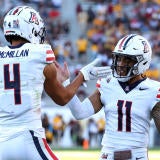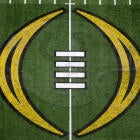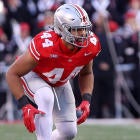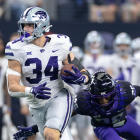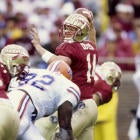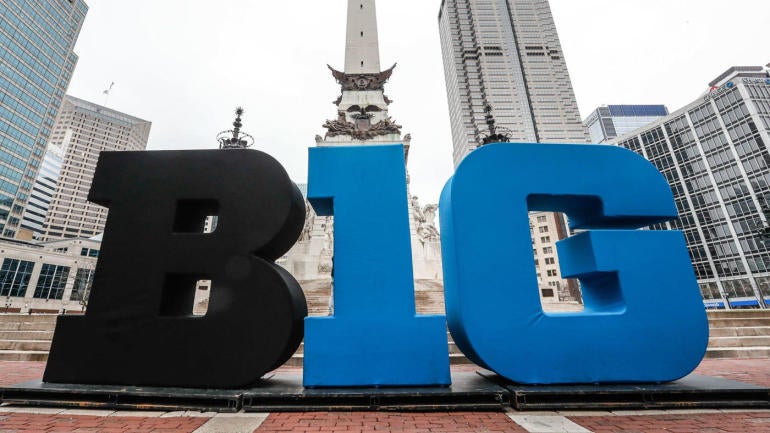
It remains "a long shot" for the Big Ten play college football this fall, a highly placed source in the conference told CBS Sports on Tuesday. This despite President Donald Trump saying the league was "on the one yard line" after a conversation with Big Ten commissioner Kevin Warren on Tuesday.
The Big Ten's Return to Competition Task Force continues to study the impact of rapid COVID-19 testing. A separate Big Ten source said that would help the conference consider playing in the fall, though it is "not the only question."
A new nasal swab developed by pharmaceutical giant Abbott got plenty of attention last week. The test is less intrusive and has a 15-minute turnaround.
Selwyn Vickers, dean of UAB's Medical School, is not serving as a direct consultant to conferences but has been sought out because of his experience and expertise on medical testing.
Vickers called the new rapid testing a "nice advance. It will be a significant, real boost in trying to do some of the events we're talking about. In short order in 15 minutes we'll know if they are positive or negative."
But is it enough to make the Big Ten reconsider?
"I can't project to know if that will," Vickers, also a personal friend of Warren's for 15 years, told CBS Sports. "I don't know if the testing limits was the thing that was keeping them from playing."
CBS Sports reported at the time of the Big Ten's fall season postponement that myocarditis -- inflammation of the heart, a long-term effect of COVID-19 -- was a significant factor in the conference's decision. As many as 15 Big Ten athletes had already developed the condition after getting COVID-19 at the time of postponement, CBS Sports previously reported.
"The Big Ten has an outstanding group of medical minds at their [disposal] who I'm sure who have given thought to [rapid testing] and likely will come up with a lot of reasons of what they need to think about," Vickers said. "I think rapid testing is one of them.
"I don't know if this is the only thing they were worried about."
The SEC, Big 12, ACC and Conference USA -- all playing this fall -- will be testing college football players three times weekly when in competition and have not expressed any concerns about getting tests. They will all utilize two PCR tests (nasal swabs that must be sent to a lab) and one rapid test closer to the date of kickoff.
Health care workers are going to be the first priority for the rapid tests. Vickers suggested the only way to get the testing machines may be through the federal government. If the Trump Administration prioritizes those machines to the Big Ten ahead of the needs of front-line workers and the general public, that could cause an outcry.
"The government has bought $150 million worth, so they're pretty hard to get," Vickers said. "By October, there is supposed to be a lot more produced. The initial stockpile the government has bought up [are] for its initial distribution to where they think their areas of need are."









